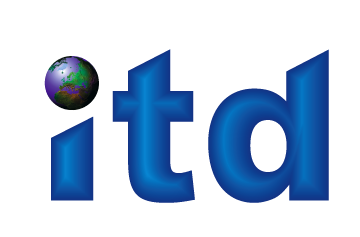[left_side]
Workshop Overview
We all assume everyone else is better and has more knowledge of written communication skills.
This is a very practical session with lawyers working on the typical document from their practice area whilst discussing key principles and gaining a lot of knowledge.
This written communication skills workshop is highly informative and is run in an engaging and fun style. Rules and guidelines are introduced using examples from actual emails and the content can be based on specific examples from your firm.
The workshop is developed to suit the needs of your firm and the needs of the participants.
The planning section typically looks at what happens when we don’t plan before we write and considers structure and the form of the communication. The grammar section looks at the choice of words, phraseology and sentence structure. The punctuation section looks at common mistakes and pitfalls. In using actual examples the subject is very relevant to the lawyers daily work.
[/left_side][right_side]
[/right_side]
[dottedline][/dottedline]
[left_side]
Pre workshop activity
- Meeting to discuss the participant’s needs and those of the organisation
- Draft workshop outline tailored to your needs
- Agreement of agenda
- Participants complete a short questionnaire and read the ITD Work Style Model in preparation for the workshop.
Duration
- Half a day to a full day, or two half days.
Typical Agenda
Introduction
- Effective written communication defined
- What are the key qualities?
- The risks of getting it wrong
Reader Assessment
- Who is going to read this document?
- Adjusting the structure, content and language based on an assessment of the reader
- Building rapport with the reader
Clear Aims
- Why am I writing this document?
- The purpose statement
Planning
- The best way to achieve the objective
- Structure and content
Building Blocks: Paragraphs, Sentences, Words and Phrases
- An explanation of the basics
- Making it clear & concise
- Writing shorter sentences
- Choice of words
- Getting the tone right
- Common pitfalls and how to avoid them
Punctuation Guide
- How are punctuation marks used?
- Avoiding the common mistakes
Hints on Writing to Persuade
- How do I get people to do what I want?
- Simple ways to make documents persuasive
Review & Personal Actions
Post workshop activity
- Participants leave with individual actions
- Email follow up of personal action plans
- Suggested conversation with their line manager on their actions
- Optional WebEx conference call follow up on these actions
- Optional 121 coaching
- ITD blog with further tips and suggestions
[/left_side][right_side]
Client feedback
- “The workshop was very engaging and our guys were working on their challenges throughout the session.”
- “Good comfortable atmosphere created from the start.”
- “Achieved exactly what I wanted.”
Participant comments
- “Very interesting.”
- “I had not looked at leadership in this way before.”
- “The difference between leading and managing is very distinct now and hugely important.”
- “It has totally changed how I view my role; I am a leader first and a manager second.”
Call or email ITD to explore how we can help your lawyers can improve their legal drafting and written communication skills.
[/right_side]
[dottedline][/dottedline]
[left_side]
Legal drafting training – Case Study
Regional law firm in UK.
Background
Trainees, junior lawyers and others benefit from this workshop which we have been running for a number of years. These are trainees or lawyers whoa have or who are developing their knowledge of the law but who need a consistent and accurate way of expressing this in documents.
Need
Simply to be able to write coherent and accurate documents whether they be letters or clauses.
Activity
We developed a half day workshop with an agenda similar to that above. Time is focussed on the key areas and based on the participants needs. The trainees complete a short pre course task which means they are in a better position to learn straight away in the session.
The workshop allows for discussion and typically we get asked the following questions;
- Is there a good way to start constructing a letter or formal email?
- How do we make sure we say what we need to without going into too much detail?
[/left_side][right_side]
Outcomes
The main outcomes of this session were:
- The team said goodbye to the past and embraced the future.
- The team created not just a new culture but an entire identity for their team.
- The energy that was produced during and following the session created an amazing atmosphere.
What the participants said
- “The session produced everything I might have hoped for and a great deal more.”
- “The office has been taken over by all of our efforts last week, it’s brilliant!”
- “The Quam is now a part of everything we do, quite remarkable!”
- “ITD did a brilliant job; superb blend of facilitation, suggestion and creativity.”
- “The activities were excellent, especially making the TV adverts!”
[/right_side]

![Man & Woman talking iStock_000008569312XSmall[1]](http://www.itd.com/wp-content/uploads/2013/03/Man-Woman-talking-iStock_000008569312XSmall11.jpg)